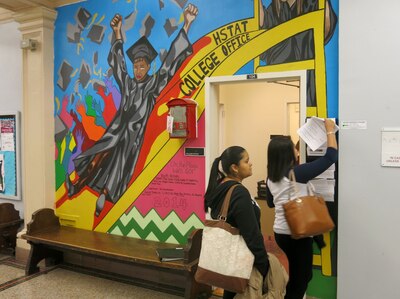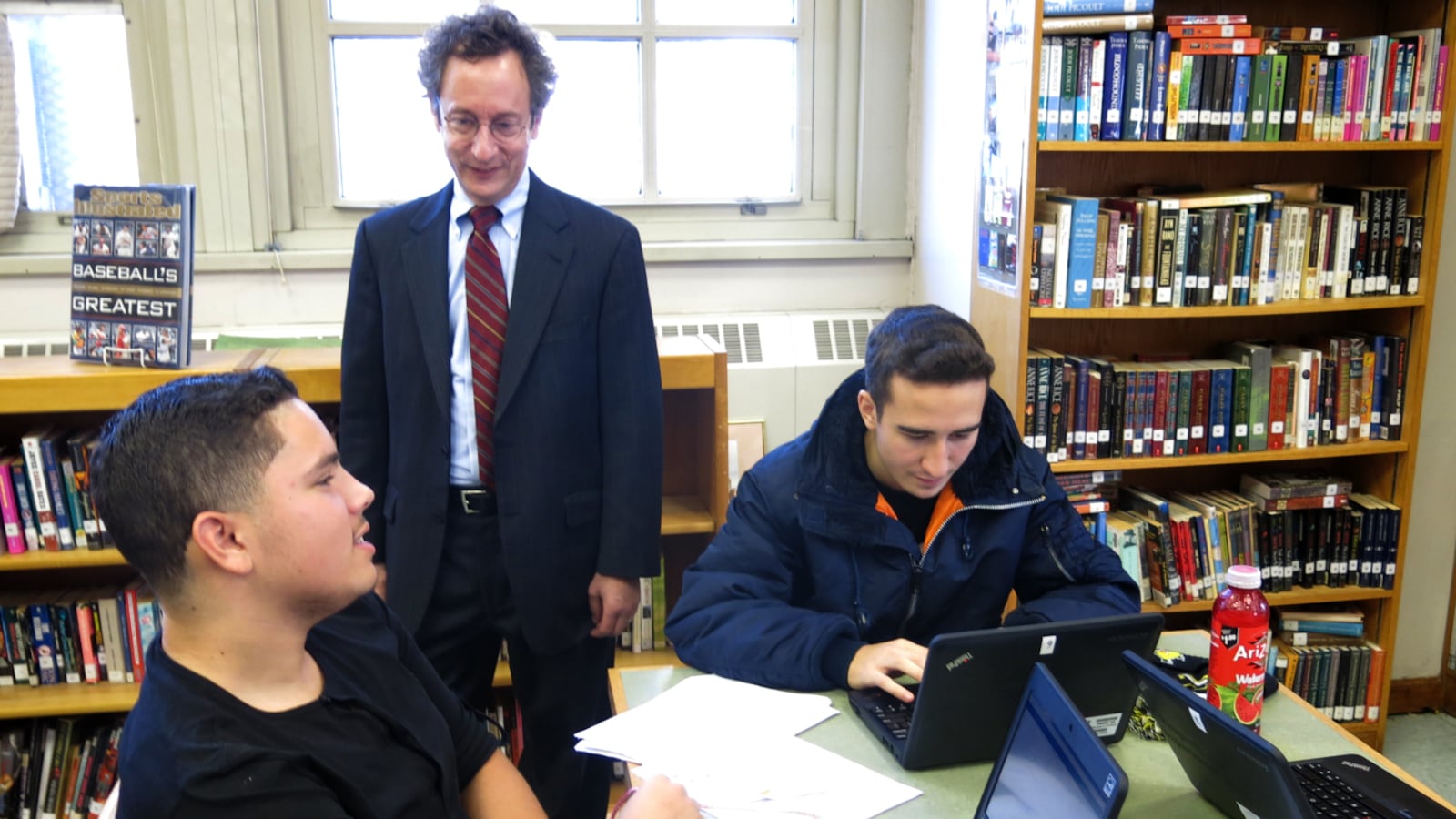Students’ exit-exam scores and performance in college are important, but high schools ultimately should be judged by the type of citizens their graduates become a decade or more into the future, Deputy Chancellor Phil Weinberg said this week.
“We also have a higher calling, which goes beyond those kind of metrics. And that is about good thinking, about strong skill ability, which may not be measured by those exams,” Weinberg said Wednesday during a visit to the High School of Telecommunication Arts and Technology, or Telly, where he worked for 27 years. He also noted the limitations of measuring high schools by when or if their graduates earn college degrees, saying that some low-income students drop out for financial reasons.
“In the end,” he added, “the judgment that we make about our schools happens 10 or 15 or 20 years down the road, when we know what kinds of citizens we’ve produced.”
His comments follow the announcement this month that 32 percent of high school graduates this year had high enough test scores to avoid remedial math and English classes at the city’s public colleges, a one-point increase from the previous year. A study released Wednesday showed that of 21,000 city students who enrolled in college after high school, only 36 percent had earned degrees after four years.
Meanwhile, Chancellor Carmen Fariña is considering how student data could be made more useful to schools. She has quietly scrapped reports that told high schools how their students did in college (the city will repackage that information for schools this spring), and she formed a new group this week to study how data can be used to help schools improve.

Weinberg was back at Telly to mark College Application Week, a national campaign that now includes 161 city high schools. Weinberg began teaching at the Bay Ridge school soon after it opened in 1985 and was principal from 2001 until this year, when Fariña asked him to oversee teaching and learning for the entire school system.
During his visit Wednesday, he was swarmed by teachers and students wanting to shake his hand or hug him. He had taught some of the students’ parents and at least one assistant principal; the new principal, Xhenete Shepard, was a student-teacher in his classroom.
College preparation is a major part of Telly’s mission: 70 percent of its students enroll in college or a work-training program within six months of graduating, compared to 51 percent of all city students.
Telly propels students toward college partly by making sure they don’t fall behind. The lower grades are divided into sections overseen by teacher teams and assigned academic advisers who keep close tabs on student progress.
“We try to put more effort in the front end,” explained assistant principal Christina Mednick, “before there’s a failing grade on the transcript.”
To keep students’ sights set on college, campus visits begin in ninth grade and repeat each year. Students can stop by the college office, situated at the school’s main entrance, to meet with a college adviser (a staff member) or a “college expert” (a fellow student who’s mastered the art of applications).

On Wednesday, seniors who needed help putting the final touches on their applications dropped by the school library, where advisers and a dozen student-experts were on hand. One of them, Krystal Coppola, helped classmates submit online forms and pare their essays down to 650 words — and having applied to 17 schools, she knew what she was talking about.
On Friday, the seniors will dress in formal attire, turn in their applications, and then celebrate — a way for the school to acknowledge their efforts and motivate younger students. In the spring, they will cover a giant bulletin board in the lobby with their acceptance letters.
“It’s actually a beautiful process to see,” Weinberg said.
Correction: A previous version of this article said the city would repackage some of the information in reports that high schools used to receive, which contained information about their graduates’ performance in college. In fact, an education department spokeswoman said all of that information will still be available to schools.

